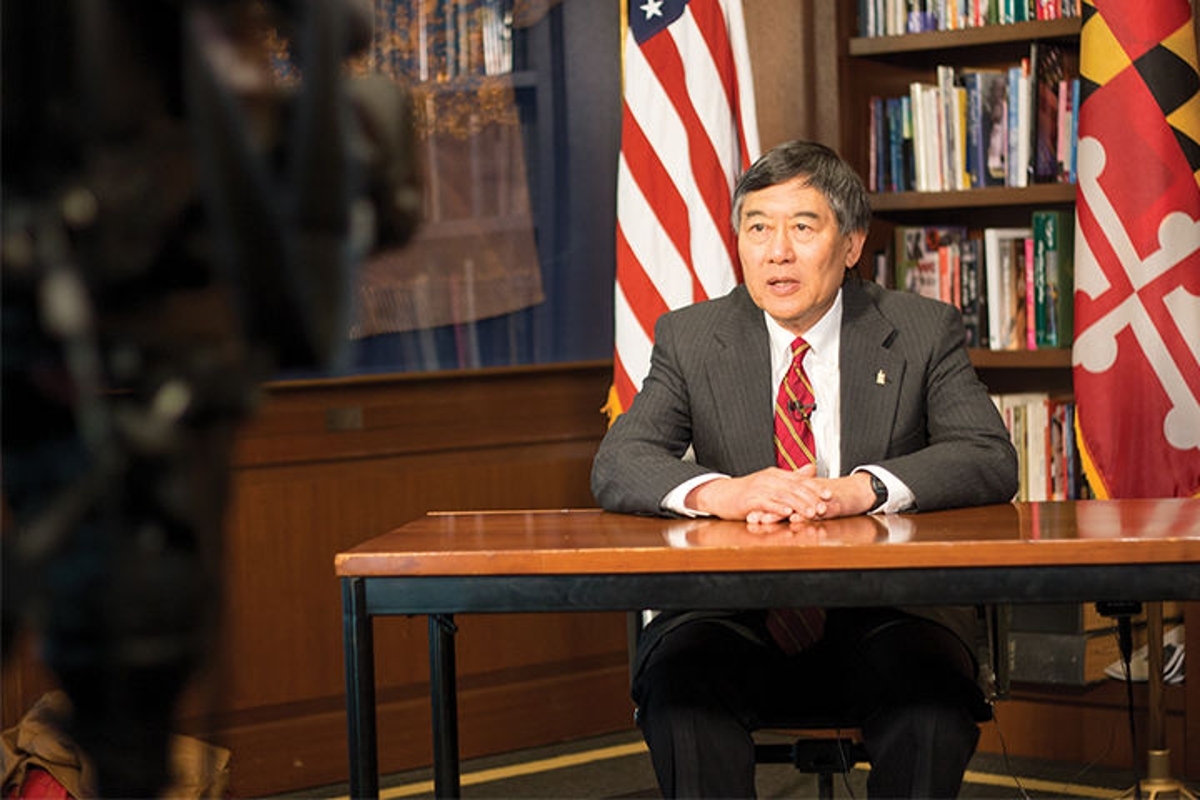By Christine Condon and Mina Haq
Senior staff writers
University of Maryland President Wallace Loh announced Thursday that the university will work with the University Senate and SGA to consider stiffer sanctions in the Code of Student Conduct for hate and bias incidents.
This university will also implement a “Pledge of Respect and Unity” for returning and incoming students, and organize events where students can take the pledge together, Loh said in the statement.
“There is much work ahead,” the statement read. “Thank you to all the members of our community who have come forward to stand up for the values that are at the core of our University.”
Loh said in the statement that the further actions come after hearing from members of the campus community, including faculty, staff, students and alumni, members of the University System of Maryland Board of Regents, the Foundation Board of Trustees, Alumni Board of Governors and elected officials.
[Read more: UMD President Loh announces plan to “combat hate and create a safer campus”]
This university’s Black Student Union created an online petition in May calling for a “less vague” definition and harsher punishments for hate speech to be listed in the Code of Student Conduct. Loh said in the statement that he appreciated receiving the BSU’s petition, which has garnered more than 49,000 signatures.
This university’s Code of Student Conduct prohibits “intentionally or recklessly causing reasonable apprehension of [physical] harm” as well as actions that pose “a threat to the stability of the campus.” A student can be expelled for violations of these items.
The code also prohibits blockages of others’ freedom of expression, citing instances at Yale and Stanford Universities where “unpopular speakers” were shouted down by protesters. Violators of this item can face suspension.
In a campuswide statement sent May 24, Loh announced a task force that will examine this university’s policies surrounding hate bias incidents and accompanying programming. He said in Thursday’s statement that the SGA and University Senate will announce in the coming weeks task force chairs and members who will begin reviewing this university’s policies and procedures related to bias, hate and campus safety to create a more inclusive culture.
The announcements come after Richard Collins III, a black student from Bowie State University, was fatally stabbed on this university’s campus May 20. Sean Urbanski, a white student at this university, was charged with first- and second-degree murder and first-degree assault in connection to the killing, which is being investigated as a possible hate crime.
Loh said in the May email this university will allocate $100,000 to the Office of Diversity and Inclusion to enhance its education efforts and established a rapid response team for such incidents. He also tasked this university’s Office of Civil Rights and Sexual Misconduct with producing an annual report on hate bias incidents and hate crimes on the campus.
In April, a noose was found in a fraternity house on the campus. University Police are investigating this event as a hate bias incident. After the noose was found, ProtectUMD, a coalition of 25 student groups, arranged a sit-in on the steps of the Main Administration Building to demand administrative action in response to multiple incidents threatening marginalized communities on the campus.
[Read more: “Hatred and tragedy”: Following the homicide of Richard Collins III]
This year has seen numerous incidents of white nationalist posters hung in campus buildings, bearing the names of groups such as American Vanguard and Identity Evropa, and chalkings advocating for the deportation of undocumented students at this university.
After Collins was killed, senior kinesiology major Chance Albury told The Diamondback that administrative action was necessary.
“The black community and other minority communities are fed up,” said Albury, a black student. “We always hear President Loh speaking on dialogue and everything’s a dialogue. These incidents that have happened aren’t dialogues.”



